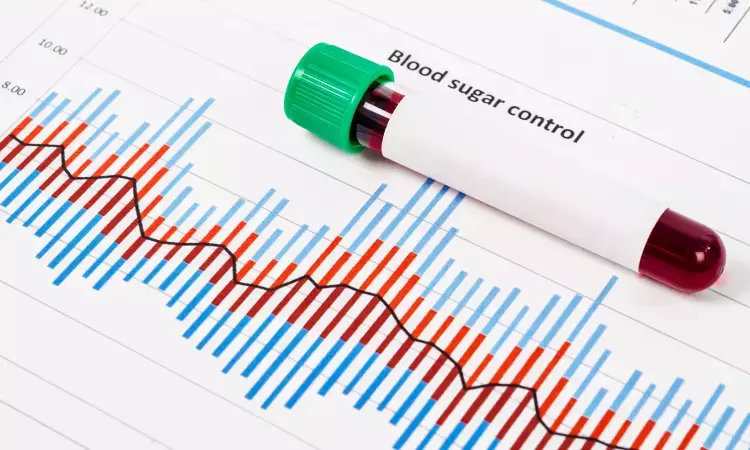- Home
- Medical news & Guidelines
- Anesthesiology
- Cardiology and CTVS
- Critical Care
- Dentistry
- Dermatology
- Diabetes and Endocrinology
- ENT
- Gastroenterology
- Medicine
- Nephrology
- Neurology
- Obstretics-Gynaecology
- Oncology
- Ophthalmology
- Orthopaedics
- Pediatrics-Neonatology
- Psychiatry
- Pulmonology
- Radiology
- Surgery
- Urology
- Laboratory Medicine
- Diet
- Nursing
- Paramedical
- Physiotherapy
- Health news
- Fact Check
- Bone Health Fact Check
- Brain Health Fact Check
- Cancer Related Fact Check
- Child Care Fact Check
- Dental and oral health fact check
- Diabetes and metabolic health fact check
- Diet and Nutrition Fact Check
- Eye and ENT Care Fact Check
- Fitness fact check
- Gut health fact check
- Heart health fact check
- Kidney health fact check
- Medical education fact check
- Men's health fact check
- Respiratory fact check
- Skin and hair care fact check
- Vaccine and Immunization fact check
- Women's health fact check
- AYUSH
- State News
- Andaman and Nicobar Islands
- Andhra Pradesh
- Arunachal Pradesh
- Assam
- Bihar
- Chandigarh
- Chattisgarh
- Dadra and Nagar Haveli
- Daman and Diu
- Delhi
- Goa
- Gujarat
- Haryana
- Himachal Pradesh
- Jammu & Kashmir
- Jharkhand
- Karnataka
- Kerala
- Ladakh
- Lakshadweep
- Madhya Pradesh
- Maharashtra
- Manipur
- Meghalaya
- Mizoram
- Nagaland
- Odisha
- Puducherry
- Punjab
- Rajasthan
- Sikkim
- Tamil Nadu
- Telangana
- Tripura
- Uttar Pradesh
- Uttrakhand
- West Bengal
- Medical Education
- Industry
Screen people with prediabetes according to age not weight, screen all above 35 years of age: USPTF

Chicago: A recent study published in the American Journal of Preventive Medicine entitled "Screening for Prediabetes and Diabetes: Clinical Performance and Implications for Health Equity” has addressed the importance of the early detection of prediabetes. The study has highlighted higher sensitivity recorded within racial and ethnic groups with recommendations of U.S. Preventive Services Task Force 2021.
U.S. Preventive Services Task Force in 2021 recommended screening adults (asymptomatic) aged 35 – 70 years for prediabetes and diabetes screening with overweight/obesity. The age was lowered compared to its 2015 recommended age of 40 years. The racial and ethnic groups with high diabetes risk at younger ages or lower BMI were considered for early screening.
In a recent study, Nationally representative data was used to collect information of 3,243 nonpregnant adults without diagnosed diabetes (January 2017–March 2020). Age and BMI were the criteria used for screening eligibility.
Prediabetes and undiagnosed diabetes were defined by fasting plasma glucose ≥100 mg/dL or haemoglobin A1c ≥5.7%. The team examined sensitivity, specificity, and predictive values of alternate screening criteria by race and ethnicity.
The study results are:
- As per 2021 criteria, there was marginally higher sensitivity (58.6%vs vs. 52.9%) and lower specificity (69.3% vs 76.4%) compared to the 2015 criteria overall and within racial and ethnic group.
- Screening at lower age and BMI thresholds caused greater sensitivity and lower specificity among Hispanic, non-Hispanic Black, and Asian adults.
- Screening all adults aged 35–70 regardless of BMI gave equitable performance.
Concluding further, 2021 U.S. Preventive Services Task Force screening criteria identify more adults with prediabetes and diabetes with even higher sensitivity and performed by race and ethnicity compared to 2015 criteria.
Further reading:
Screening for Prediabetes and Diabetes: Clinical Performance and Implications for Health Equity. https://doi.org/10.1016/j.amepre.2023.01.007
BDS, MDS in Periodontics and Implantology
Dr. Aditi Yadav is a BDS, MDS in Periodontics and Implantology. She has a clinical experience of 5 years as a laser dental surgeon. She also has a Diploma in clinical research and pharmacovigilance and is a Certified data scientist. She is currently working as a content developer in e-health services. Dr. Yadav has a keen interest in Medical Journalism and is actively involved in Medical Research writing.
Dr Kamal Kant Kohli-MBBS, DTCD- a chest specialist with more than 30 years of practice and a flair for writing clinical articles, Dr Kamal Kant Kohli joined Medical Dialogues as a Chief Editor of Medical News. Besides writing articles, as an editor, he proofreads and verifies all the medical content published on Medical Dialogues including those coming from journals, studies,medical conferences,guidelines etc. Email: drkohli@medicaldialogues.in. Contact no. 011-43720751


